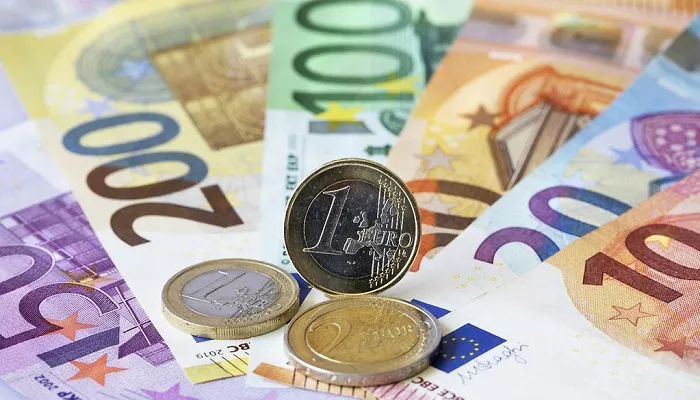France is pushing other EU countries to take new steps to raise the euro’s status as a global reserve currency. This move is part of France’s long-standing campaign for increased joint borrowing within the bloc.
A draft EU statement, shared before a leaders’ summit later this month and seen by the Financial Times, calls on EU institutions, including the European Central Bank (ECB), to “explore actions to reinforce the international role of the euro.”
The drive comes in response to the unpredictable trade and economic policies of former US President Donald Trump. These policies have weakened the US dollar’s dominance. This change has opened an opportunity for the euro, now 25 years old, to become more attractive for global transactions.
France argues that investors want a safe alternative to US Treasury debt. Therefore, the EU should issue more joint debt to meet this demand, according to officials familiar with France’s position.
France, along with other highly indebted countries such as Italy and Spain, has long supported common borrowing. They believe this will allow them to invest more in priorities like defense without increasing their national debts.
IMF Managing Director Kristalina Georgieva spoke at an EU finance ministers’ meeting in Luxembourg, saying, “There is a great opportunity for the euro to play a bigger role globally.” She noted the growing demand for safe assets but said the supply is limited. She added that many investors are now turning to gold as a safe asset, referencing ECB data showing gold has surpassed the euro in central bank reserves.
ECB President Christine Lagarde wrote this week that this is a “global euro moment.” However, she stressed that reforms are needed to seize the opportunity. These include creating a larger supply of safe assets.
Lagarde highlighted that despite the EU’s strong overall fiscal position—with a debt-to-GDP ratio of 89 percent compared to 124 percent in the US—the EU still lacks enough high-quality safe assets. Estimates show that sovereign bonds with at least an AA rating account for just under 50 percent of GDP in the EU, compared to over 100 percent in the US.
An EU official described this as a “classic Lagarde move,” promoting ideas such as joint borrowing favored by France.
Philip Lane, the ECB’s chief economist, said earlier this month that the eurozone faces a shortage of safe assets. One solution, he said, is to issue new common bonds to fund projects across Europe. Another option is to convert more national bonds into Eurobonds. He referenced a paper by economists Olivier Blanchard and Ángel Ubide supporting this idea.
However, any decision to issue more joint EU debt requires unanimous approval. Germany and the Netherlands oppose this, as they would bear a larger share of the repayment.
A senior EU diplomat said the European Commission will consider Germany’s opposition but warned that pressure to act will increase if some member states’ economies weaken.
The EU is still repaying nearly €800 billion of common debt issued during the Covid-19 pandemic for economic recovery. The European Commission estimates that €30 billion per year, or about 20 percent of the budget from 2028, will go toward repayments unless the debt is refinanced.
France believes issuing additional joint debt could increase liquidity and attract investors, according to sources familiar with the matter.
An EU diplomat added, “If more member states improved their credit ratings, there would be no shortage of euro-denominated safe assets.”
A spokesperson for the French permanent representation in Brussels declined to comment.
European Council President António Costa, who will chair the upcoming summit on June 26-27, has included the euro’s role on the agenda. This is part of broader talks about deepening the EU’s still fragmented single market amid current geopolitical challenges.
Costa told the Financial Times that better integration of the single market and unified EU rules on savings and investments would strengthen the euro’s global standing. He described the EU as “an open, stable, and reliable partner.”
The US dollar’s share of global foreign exchange reserves has been declining for years. By the end of 2024, it accounted for 58 percent, down from 65 percent ten years earlier, according to think-tank Chatham House.
The euro holds about 19 percent of global reserves, roughly the same level it had when it was created in 2000, according to the IMF.


